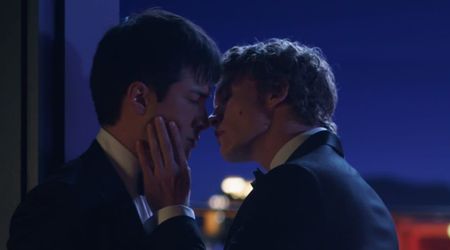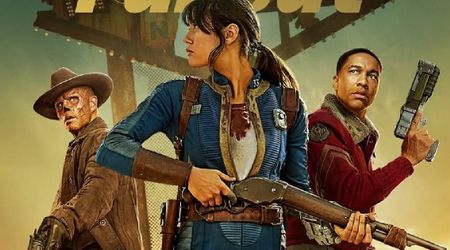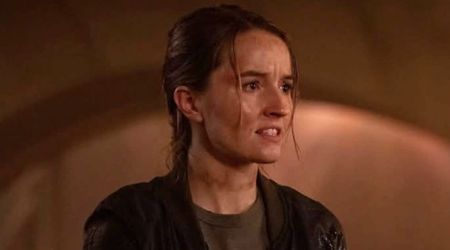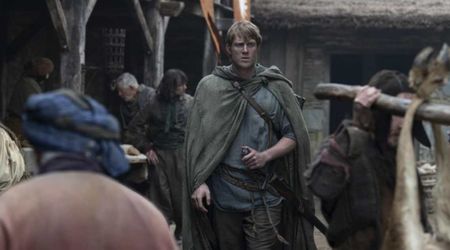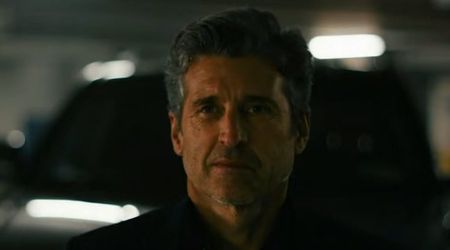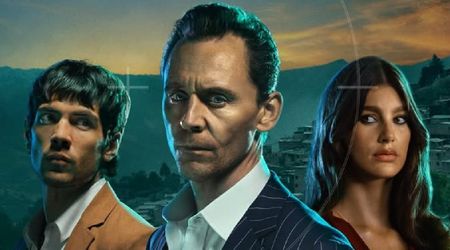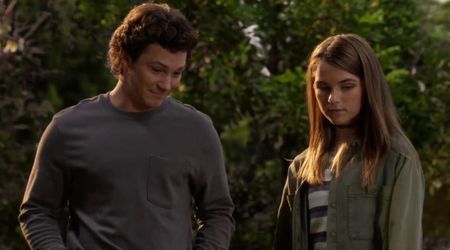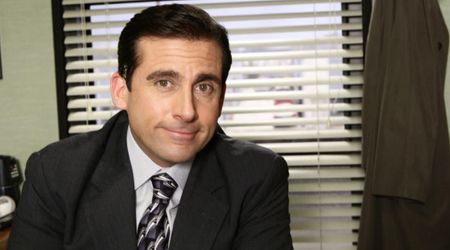'Jane Goodall: The Hope' tells the tale of the woman who changed what we know about chimps

National Geographic's special new documentary is the story of one extraordinary woman, whose love for animals and nature inspired her into not only becoming a researcher but an advocate for the rights of animals and environmental conservation. The documentary gives us a glimpse into the life of the animal activist and naturalist, Dr Jane Goodall, a force so powerful that she's considered a deity.
Goodall, or as most know her as the 'chimp lady', started off as a primatologist in 1960 and spent most of her 86 years in the African wild researching chimpanzees and advocating the conservation of their habitat. When she was hit with the harsh reality that nature is well on its way to being destroyed, she deemed it her personal responsibility to be a catalyst for change and do what she can to protect the earth.
In the 1980s, when she realized that the chimpanzee population was dwindling and their habitat was threatened by human development, she answered her calling to become an activist for the earth. Compiling 60 years' worth of footage that highlights her vision, her missions, and her legacy, 'Jane Goodall: The Hope' is a story of one remarkable woman who went for the kind of change that the world never knew it needed.

Goodall grew up in Bournemouth, England, where even as a child she often indulged in the magic of nature. But what sealed her fate was the first book she'd ever gotten her hands on: 'The Story of Doctor Dolittle' by Hugh Lofting. It illustrates the story of a doctor, who learns to talk to animals out of his great love for them and becomes a veterinarian to advocate for them around the world. The story definitely resonates with who Goodall is today, but she credits it for the path she chose in life, saying if it weren't for that book she would have never gone to Africa.
In 1960 at only 26 years of age, Goodall embarked on her journey to become a primatologist and study the chimpanzees in the African wild of Gombe, Tanzania. Her research mission was to research the untamed primates, that science has theorized for centuries are the closest relative to man. However, in her time there, she became one with the chimps and one with nature.
Not only did they became a subject of her study, but they also became her mission. "Being out in the forest, I had a great sense of spiritual awareness, a spiritual power, and it was strong out in the forest", she said. "You cannot help but understand how everything's interconnected. Sitting out there - there is a spark of that spiritual power in each one of us and animals too."
She equates this spiritual power to the intense feeling that sets in when one walks into a cathedral as old as time, that boasts a rich history of worshippers. "Because we must label everything, we call it a soul. If we have soul, then so do they [animals]" she added.

Her mission drastically changed from mere research to protection and conservation in 1986, when she helped put together a conference for scientists based in six other parts of Africa, undertaking research about chimpanzees. The conference was an eye-opener for her as she was made aware of the chimpanzees' dwindling habitat, as humans began encroaching upon their homes. The injustices they suffered at the hands of animal trade, hunters and animal trafficking struck a chord within her being. She entered the conference as an important chimpanzee ally but came out an activist for their welfare and that of the earth.
"Once you realize you can make a difference, it would be totally selfish to go back to being unknown," she spoke of her switch from researcher to conservationist. "We are part of the natural world, and as we destroy the natural world, we destroy our future."
Upon learning that primates were being tested on in labs because scientists saw that they exhibited behavior similar to humans, she believed her privilege had culminated with her responsibility to give back to the earth had begun. In a hard-hitting montage of footage from her visit to these labs, we see her interactions with the chimps that had been incarcerated as testing subjects. Goodall however never went to these labs to admonish the researchers or accuse them of cruelty.

Her intention was to change their perspective with her words, which she ultimately succeeded in doing, because "If you don't talk to people, how can you change them?" She influenced the scientists to think differently and as Dr Robert Gallo, Director at the Institute Human Virology at the University of Maryland School of Medicine, said, "she brought consciousness to your conscience." Indeed she was and still is a force to reckon with, especially since she isn't one of those infuriating activists that get under your skin by resorting to argumentative methods or staging protests. Instead, she is the sort of activist whose impactful words enable opinions and make you contemplate the purpose of your existence on the earth. Goodall is also a close friend of Prince Harry, the former Duke of Sussex, who is an advocate for environmental preservation himself.
Since her epiphany in the 1980s, Goodall has worked around the clock on a tight schedule to travel around the world and convey her message to work towards not only saving the chimpanzees but also the earth. "My job is to go around the world and inspire people to take action", she said. She is so completely driven by her mission and does what she believes in staunchly, which is practically now what sustains her and keeps her alive. When she's reminded that time is running out, her immediate response is that it is indeed time to speed up because she wants to spend every living second of her life doing things till she can do them no more.

Her foremost goal has always been inspiring the forthcoming generations to step forward and take action. This fueled her to establish her mission and give it a foundation — the Jane Goodall Institution and the Roots and Shoots program that works on environmental and humanitarian issues. "We get to choose what sort of difference we make", she asserted. Young people are the future, and better yet, they are the governments and lawmakers of the future. What started off as a small organization of young people working towards the betterment of the environment grew by leaps and bounds and millions of students the world over have become a part of Roots and Shoots. To her, young people shine a light of hope in the darkness that is clouding the world.
She traveled all around Africa in the 1980s, and with backing from James Baker, the White House Chief of Staff under President Ronald Reagan, she was able to give her mission a solid footing. Goodall was every bit of a smart individual, and her mission of saving the earth drove her to make crucial changes. She approached organizations that entirely defied her mission, but her words compelled them into working with her towards conserving nature. Conoco, an oil company came onboard when she answered a cry for help from neglected chimpanzees at a zoo in Congo, and helped set up the Tchimpounga Chimpanzee Rehabilitation Center in Tanzania where the chimps were later transported and looked after. In this sense, Goodall is a contrarian and she is not afraid to show it.

As a researcher, Goodall managed to transform the attitude of science towards animals. She documented animals in an unprecedented manner and even gave them names, attributed behaviors, and emotions to them and determined in them something that was always considered innate to human beings. Even their sense of recognition is similar to those in humans, but while people connect with each other through words, in animals it is more telepathic.
Goodall tries to convey three crucial points through her message, which features a few salient points: to never be confrontational, reach people's hearts to change their minds and not do something simply because you want the honor and glory of doing it. She is passionate about the earth and it shows in her work. But most of all, her passion is contagious and it ignites a spark in everyone that comes in contact with her. "Being the way I am, and feeling like I have a message to give and that I was put on this earth to do it - I have to do it and I can't give up", she said.

Goodall leaves behind an impressive legacy, and her grandchildren have made it their mission to carry it on with their hundred percent involvement in her foundation. She equates hope to the intellect, so as to find ways to live in harmony and gives a sense of humanity to what we know is pure science. Her words weigh a tonne and the impact they have on her ardent listener is inexplicable. She believes that the hope for a better future is attached to action and unless you take responsibility, you can't bring about change.
"Hope is contingent upon our taking action together soon. All of us. We've all got to do our bit. We've all got to act together," she said. "Together we can. Together we will."

